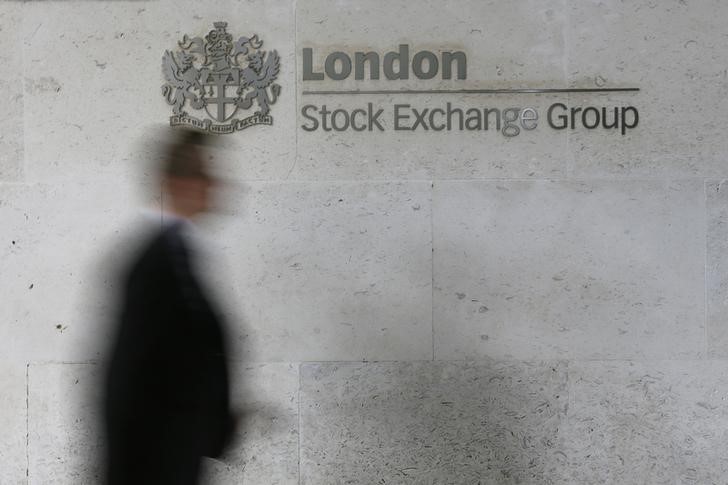By Marc Jones
LONDON (Reuters) - The strongest growth for the world's largest economy in over a decade delivered pre-Christmas cheer in global markets on Wednesday as stocks maintained their strong run and the dollar hovered at an 8-1/2 year high.
The U.S. economy grew at a 5.0 percent pace in the third quarter, the quickest in 11 years.
Despite the approaching Christmas break, there was a late flurry of data that showed unemployment claims falling for a fourth straight week and a small uptick in mortgage applications.
The Dow Jones industrial rose 35.9 points, or 0.2 percent, to 18,060.07, the S&P 500 gained 2.42 points, or 0.12 percent, to 2,084.59, and the Nasdaq added 5.90 points, or 0.12 percent, to 4,771.33.
Most Asian markets had edged up overnight and Europe was looking to close the Christmas week up 1 percent despite a subdued day on Wednesday.
With economists pencilling in a slightly earlier date for the first post-financial crisis rise in U.S interest rates, the dollar was taking a breather having reached its highest since 2006 against a basket of major currencies.
The two-year U.S. Treasury (government bond) yield was hovering at levels not seen in almost four years.
"As is to be expected at this time of year, trading volumes have really plummeted, but pretty much what we see is the stronger dollar trend continuing," said Alvin Tan, an FX Strategist at Societe Generale.
FRONTLINE CONFRONTATION
Oil dropped over 2 percent to just above $60 a barrel following an almost 50 percent fall over the last six months.
That is piling pressure on Russia. Standard and Poor's warned of a credit rating cut to 'junk' early next year, as Moscow kept up confrontational rhetoric with the West and NATO over Ukraine.
"NATO countries pushed Kiev to this counterproductive decision, trying to turn Ukraine into a front line of confrontation with Russia," Russia's Deputy Defence Minister Anatoly Antonov told news agency Interfax.
The rouble plunged to an all-time low in mid-December on the back of lower oil prices and Western sanctions, which make it almost impossible for Russian firms to borrow on open markets.
It has since been shored up by informal capital control measures and was a shade lower at 54.6 to the dollar.
S&P said its downgrade warning "stems from what we view as a rapid deterioration of Russia's monetary flexibility and the impact of the weakening economy on its financial system."
FINE CHINA
Asia's overnight gains had been led by Tokyo's Nikkei as it rose 1.2 percent, while MSCI's broadest index of Asia-Pacific shares ex-Japan gained 0.2 percent.
Japanese Prime Minister Shinzo Abe was officially re-elected by parliament on Wednesday. His new cabinet is expected to keep up his aggressive stimulus push.
Shanghai bucked the regional trend, as profit taking took its toll on a 40 percent jump that had made it the best performing major market of 2014.
World stocks overall are up a more modest 3 percent as plunges in oil-linked markets such as Russia and drops in parts of the euro zone have offset a near 13 percent jump in benchmark U.S. markets such as the S&P 500.
Commodities have struggled too. Not only has oil halved in price but growth-sensitive copper and gold are also down for the year.

Spot gold rose 0.2 percent to $1,178 an ounce in Europe but remained well within reach of a three-week low of $1,170.17 hit on Monday. Any dip below that level could trigger further losses, analysts say.
(Editing by Mark Potter/Ruth Pitchford)